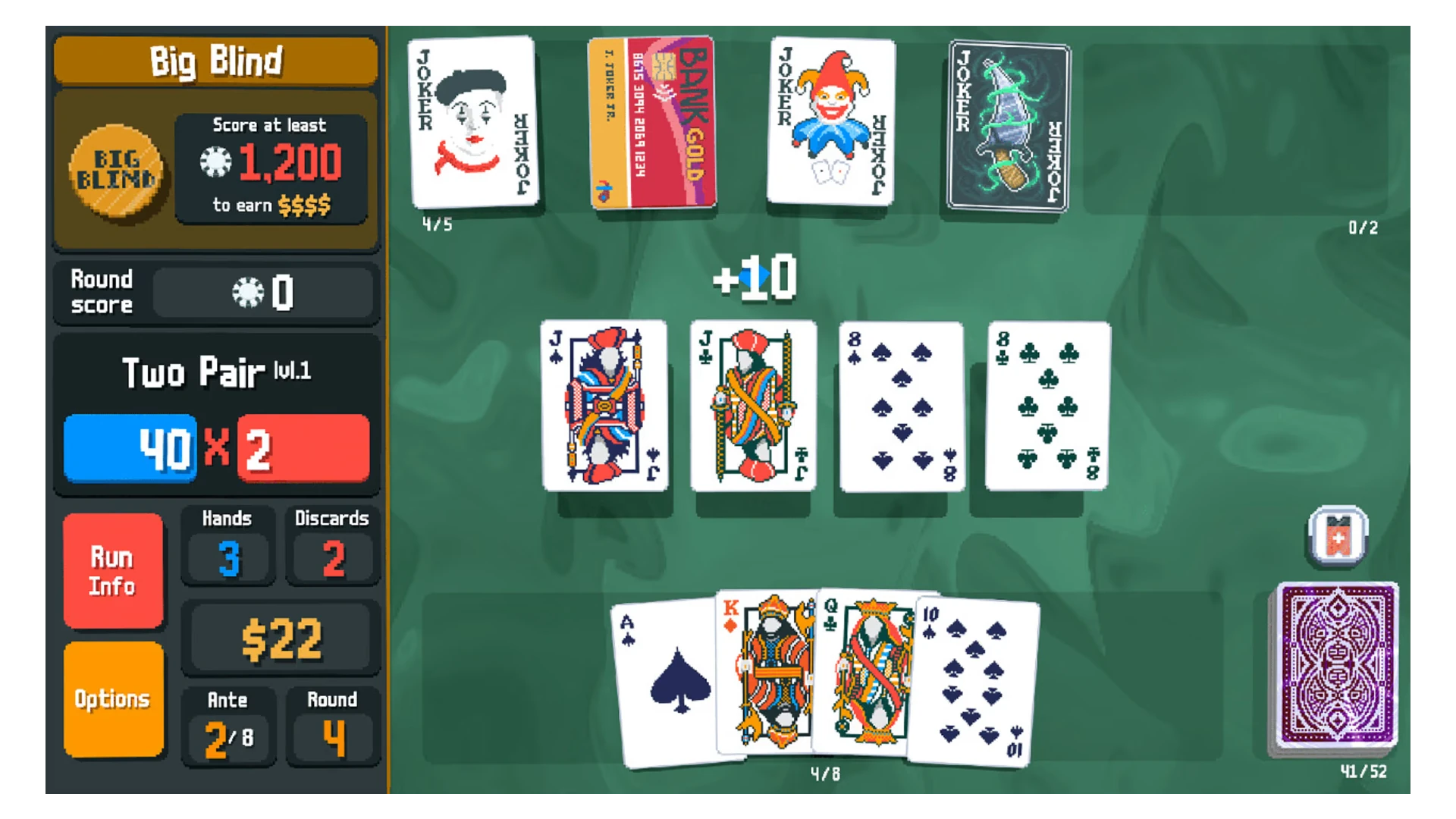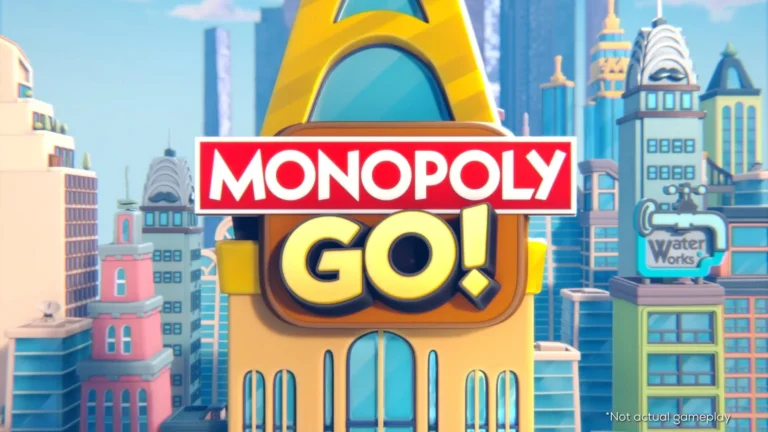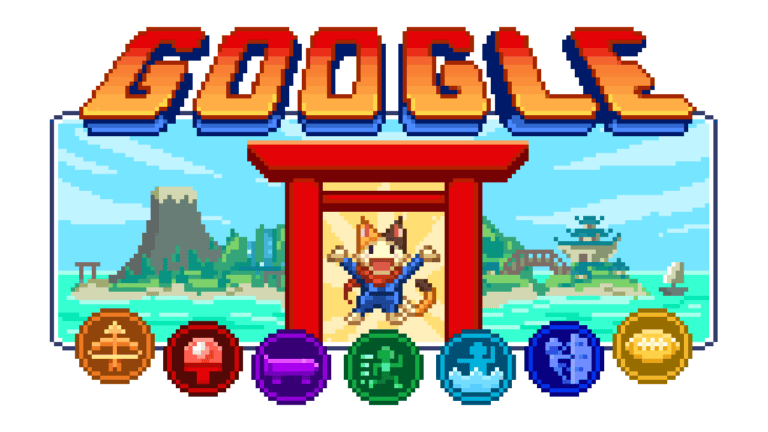
Balatro, a popular card game, received an unexpected 18+ rating from PEGI (Pan European Game Information) in December 2024. This decision surprised many players and industry observers. The PEGI rating board cited the game’s depiction of gambling and its potential to teach gambling skills as reasons for the mature classification.
The developer, LocalThunk, expressed frustration with the rating. They argued that Balatro’s content is comedic and does not warrant such a strict age restriction. The game’s success, including multiple awards and over 3.5 million sales, stands in contrast to its new adult-only status in Europe.
This rating change has led to Balatro’s removal from digital storefronts in several EU countries. The situation has sparked discussions about rating consistency and the criteria used to evaluate games with gambling themes or mechanics.
Balatro’s Unexpected 18+ PEGI Rating
What is Balatro?
Balatro is a roguelike deck-building game. Players use poker hands to battle enemies. It combines strategy and luck. The game has gained a following for its unique gameplay.
The PEGI Rating
The Pan European Game Information (PEGI) gave Balatro an 18+ rating. This means the game is only recommended for adults. This rating is surprising to many. The game’s visuals are not graphic. The core gameplay revolves around card play.
Why the 18+ Rating?
PEGI ratings consider several factors. These include violence, sexual content, and bad language. They also look at gambling elements. Balatro likely received its 18+ rating due to simulated gambling. The game uses poker hands and involves betting mechanics. Even though no real money changes hands, the simulated gambling is enough for the high rating.
What This Means for Players
The 18+ rating may limit the game’s audience. Some stores might not stock it. Digital storefronts may restrict access to younger users. This could affect the game’s sales.
Comparison to Other Card Games
Many card games involve similar mechanics. These games often receive lower ratings. This difference highlights the strict stance on simulated gambling. Even if it is not for real money.
Impact on the Game’s Future
The developers may consider changes to lower the rating. This could involve removing or altering the betting aspects. However, this could also change the core gameplay.
Player Reactions
Players have reacted with surprise to the rating. Many feel it is too strict. Some worry about the impact on the game’s visibility. Others defend PEGI’s decision. They argue that simulated gambling can be harmful.
Alternative Ratings Systems
Other regions use different rating systems. The ESRB in North America is one example. It is possible Balatro will receive a different rating in other regions. This could lead to different marketing strategies.
The Importance of Ratings
Game ratings help parents make informed choices. They provide information about a game’s content. This allows parents to decide if a game is suitable for their children.
The 18+ rating for Balatro brings attention to how rating boards view simulated gambling within video games. While the game doesn’t feature graphic violence or mature themes in its visuals, the presence of betting mechanics, even without real-world currency, was enough to warrant the adult rating. This decision underscores the importance of understanding regional rating systems and their criteria, especially for developers targeting a broad audience. The rating serves as a reminder that simulated gambling can be a sensitive topic, potentially influencing a game’s market reach and reception.
Key Takeaways
- PEGI gave Balatro an 18+ rating due to gambling content
- The game’s developer contests the rating as overly strict
- Balatro’s EU sales are impacted by the new classification
Overview of Balatro
PEGI ratings classify games based on content suitability for different age groups. 1 The ratings system helps parents make informed decisions about the games their children play. Ratings range from PEGI 3 (suitable for all ages) to PEGI 18 (for adults only).
The ratings consider factors like violence, sexual content, bad language, and gambling. 2 These ratings are important for both physical and digital game sales. They affect how games are marketed and sold across Europe.
Balatro is an indie roguelike deckbuilder game with a poker theme. It combines unique gameplay mechanics with strategic card-based battles, offering players a fresh take on the deckbuilding genre.
Gameplay and Mechanics
Balatro challenges players to build powerful poker hands using a variety of cards. Each run presents new card combinations and strategies. Players must carefully select cards to create winning hands and defeat opponents.
The game features a roguelike structure. This means each playthrough is different. Players encounter random events and enemies as they progress. Balatro’s difficulty increases with each level, keeping the gameplay engaging.
Special abilities and power-ups add depth to the gameplay. These elements allow players to manipulate their hands and gain advantages over opponents. The game’s poker-inspired mechanics are easy to understand but hard to master.
Development and Publisher
LocalThunk developed Balatro as a solo project. The game gained attention for its innovative blend of poker and deckbuilding elements. Playstack, an indie game publisher, recognized Balatro’s potential and partnered with LocalThunk.
Playstack’s support helped bring Balatro to a wider audience. The game launched on multiple platforms, including PC, Nintendo Switch, PlayStation, and Xbox. This multi-platform release strategy expanded Balatro’s reach in the gaming market.
Balatro received positive reviews from critics and players alike. Its success led to several award nominations and wins at The Game Awards 2024. The game’s sales surpassed 3.5 million copies, marking a significant achievement for an indie title.
Pegi Rating System
The Pan European Game Information (PEGI) system provides age ratings for video games across Europe. This standardized approach helps consumers make informed decisions about game content suitability.
Rating Criteria
PEGI uses specific criteria to assign age ratings. Games receive ratings based on violence, language, fear, sex, drugs, discrimination, gambling, and in-game purchases. The system employs five age categories: 3, 7, 12, 16, and 18.
Content descriptors accompany each rating, giving more details about potentially concerning elements. For example, a game might have a “PEGI 12” rating with descriptors for “Violence” and “Bad Language.”
PEGI reviewers assess games through gameplay, videos, and documentation provided by publishers. They consider context, realism, and reward systems when determining appropriate ratings.
Impact of Rating on Sales
Age ratings can significantly affect game sales and accessibility. Higher ratings may limit a game’s potential audience, particularly for titles aimed at younger players. Some retailers refuse to stock games with 18+ ratings, reducing distribution options.
Parents often use PEGI ratings to guide purchasing decisions for children. A sudden rating change, as seen with Balatro, can disrupt marketing plans and sales projections. Games may be delisted from digital storefronts in certain regions if they don’t meet local rating requirements.
Developers must balance creative vision with rating considerations to maximize market reach. Some may modify content to achieve a lower rating and broader appeal.
Controversies and Discussions
The PEGI 18+ rating for Balatro has sparked debates about video game content, gambling mechanics, and regulatory approaches. These discussions highlight complex issues in the gaming industry.
Gambling and Video Games
Balatro’s 18+ rating raises questions about simulated gambling in games. The PEGI board deemed the game’s poker-like mechanics unsuitable for younger players. This decision contrasts with ratings for other games featuring similar elements.
Some argue that Balatro’s gameplay is purely strategic, without real-money stakes. Others support the rating, citing concerns about normalizing gambling behaviors. The debate extends to broader discussions of gambling-adjacent mechanics in video games.
Game developers and players alike are questioning the consistency of rating criteria across different titles and genres.
Loot Boxes and Microtransactions
The Balatro controversy has reignited discussions about loot boxes and microtransactions in games. Many point out that games with these features often receive lower age ratings despite their gambling-like nature.
Critics argue that loot boxes, which players can purchase for random in-game items, are more akin to real gambling than Balatro’s mechanics. Some games targeted at children include these systems, raising ethical concerns.
The discrepancy between Balatro’s rating and those of games with loot boxes has led to calls for more consistent regulation. Industry experts are debating the long-term impact of these monetization strategies on players.
Regulation and Legislation
The Balatro rating situation has prompted discussions about gaming regulations. Some countries, like Belgium and the Netherlands, have already taken steps to restrict loot boxes in games.
Lawmakers and regulators are considering how to address gambling-like mechanics in video games. The challenge lies in balancing consumer protection with industry innovation.
Proposals range from stricter age ratings to outright bans on certain features. The gaming industry is closely watching these developments, as they could significantly impact game design and monetization strategies.
Some advocate for self-regulation by game developers, while others push for government intervention. The outcome of these debates could shape the future of gaming content and business models.
Market and Industry Reaction
The sudden PEGI rating change for Balatro sparked significant reactions across the gaming industry. This unexpected development affected the game’s availability and recognition.
The Game Awards Recognition
Balatro received a nomination for Best Debut Indie Game at The Game Awards 2024. This nomination highlighted the game’s popularity and critical acclaim despite the rating controversy. The Game Awards typically showcase titles with broad appeal, making Balatro’s inclusion notable given its new 18+ rating. This recognition contrasted sharply with the game’s removal from some digital storefronts.
Community and Critic Response
Gamers and critics expressed surprise and frustration at Balatro’s sudden delisting. Many questioned the logic behind the rating change, comparing it to other games with gambling themes. On Steam, where the game remained available, player reviews stayed overwhelmingly positive. Nintendo Switch users in affected regions voiced disappointment at losing access to the popular title. Industry analysts debated the potential impact on future indie game releases, particularly those with card game elements.
Frequently Asked Questions
Balatro’s PEGI 18+ rating has sparked numerous questions about the classification process, content warnings, and implications for the game’s distribution. Here are some key points addressing common inquiries.
What criteria were used to determine Balatro’s PEGI 18+ rating?
PEGI cited “prominent gambling imagery” as the main reason for Balatro’s 18+ rating. The game’s poker-themed mechanics and visual elements likely influenced this decision. PEGI’s rating system aims to protect minors from potentially harmful content.
Are there specific content warnings associated with Balatro’s PEGI 18+ classification?
The primary content warning for Balatro relates to gambling themes. PEGI’s consumer advice states the game is not suitable for persons under 18 years old. No other explicit content warnings have been mentioned in relation to the 18+ rating.
How does the PEGI 18+ rating for Balatro compare to its ratings in other countries?
Balatro’s PEGI 18+ rating in Europe differs from its classifications in some other regions. The game’s rating history and current status vary across different markets. Some countries may have less stringent criteria for gambling-themed content in video games.
What impact does a PEGI 18+ rating have on a game’s marketing and distribution?
A PEGI 18+ rating restricts a game’s availability to adults only. This classification affects Balatro’s marketing strategies and limits its potential audience. The game has been removed from some digital storefronts in EU countries due to the rating change.
Can changes be made to Balatro to receive a lower PEGI rating in the future?
Modifying Balatro’s content or gameplay mechanics might lead to a lower PEGI rating. The developers could potentially adjust the game’s gambling-related elements. However, such changes would need careful consideration to maintain the game’s core appeal.
What steps can parents take to understand and manage PEGI 18+ rated games like Balatro?
Parents can educate themselves about PEGI ratings and their meanings. They should review game content descriptions and warnings. Setting parental controls on gaming devices helps restrict access to age-inappropriate games. Open discussions with children about game content and age ratings are also beneficial.






